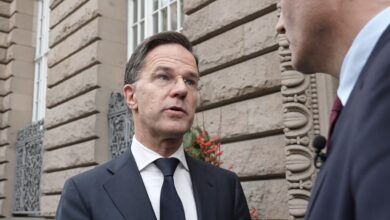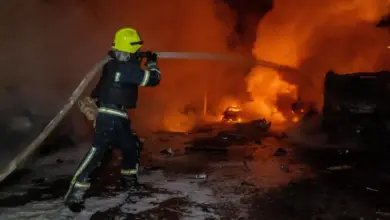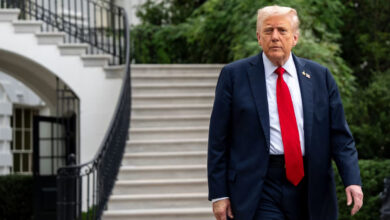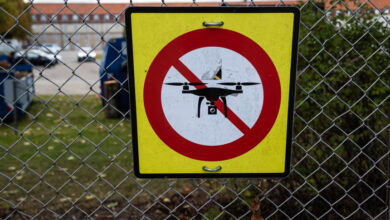Misrata — NATO warned civilians to stand clear of its bombing blitz on Muammer Qadhafi's troops, as Libyan rebels called for "major" air strikes and two top photographers were killed in besieged Misrata.
NATO's warning came as Libyan official media reported seven civilians killed and 18 wounded in an alliance air raid that targeted the southwestern Tripoli suburb of Khellat Al-Ferjan late on Wednesday.
"Our planners and pilots go to very great lengths to ensure we do all we can to reduce the risk to civilians when we attack targets, but the risk cannot be reduced to zero," the general in charge of NATO's operations said in a statement from Brussels.
"Civilians can assist NATO by distancing themselves from Qadhafi regime forces and equipment whenever possible," Lieutenant-General Charles Bouchard said.
"Doing this will allow NATO to strike those forces and equipment with greater success and with the minimum risk to civilians," the statement said.
In Paris, Libyan rebel leader Mustafa Abdel Jalil said the insurgents expect "major strikes by the coalition" against Qadhafi's forces.
"We are sure that Qadhafi will be overthrown sooner or later, but we want it to be as soon as possible," Jalil told French TV Wednesday after meeting with French President Nicolas Sarkozy.
Asked whether the conflict would be won by force or negotiation, Jalil told France 24: "We expect there to be major strikes by the coalition, then Libyans can reach a solution."
"The longer he stays the more blood will be spilled," said Jalil, who heads Libya's Transitional National Council (TNC).
In the besieged rebel-held city of Misrata, two photojournalists were killed including Tim Hetherington, an Oscar-nominated British film director and war photographer.
Vanity Fair, for which Hetherington was a contributing photographer, confirmed the death of the 41-year-old who covered numerous conflicts and won the 2007 World Press Photo Award for his coverage of US soldiers in Afghanistan.
Chris Hondros, also 41, suffered grave head injuries in the same mortar attack, said medics in the western port city, and died hours later from his wounds, Getty Images confirmed to AFP.
Two other colleagues, Guy Martin, a freelance photographer working for Panos, and photographer Michael Brown, working for Corbis, were also wounded in the attack, the agencies confirmed.
In Geneva, UN High Commissioner for Human Rights Navi Pillay condemned the reported repeated use of cluster munitions and heavy weaponry by government forces in the siege of Misrata.
Rebel leaders have pleaded for foreign soldiers to help them battle Qadhafi's forces, who have been pounding Misrata for more than six weeks, in fighting which a doctor said had claimed at least 1000 lives.
France, Italy and Britain have said they would send military personnel to insurgent-held eastern Libya, but only to advise the rebels on technical, logistical and organizational matters and not to engage in combat.
US Secretary of State Hillary Clinton said Wednesday that the United States would not join its allies in sending military advisers to aid the rebels.
"There is a desire to help them be more organised and we support that. We're not participating in it, but we support it," she said on PBS.
When asked whether she thought a political solution was possible that would allow Qadhafi, who has ruled Libya with an iron fist for over 41 years, to remain in power, she responded: "I don't think so."
However, she also said "It's too early to tell" if the conflict has reached a stalemate.
Massive Libyan protests in February — inspired by the revolts that toppled longtime autocrats in Egypt and Tunisia — escalated into war when Qadhafi's troops fired on demonstrators and protesters seized several eastern towns.
The battle lines have been more or less static in recent weeks, however, as NATO air strikes have helped block Qadhafi's eastward advance but failed to give the poorly organized and lightly-armed rebels a decisive victory.
A senior American diplomat, meanwhile, told lawmakers in a letter obtained by AFP on Wednesday, that Obama plans to provide the rebels with up to US$25 million in urgent, non-lethal aid.
Clinton insisted the equipment was coming from US government stock, saying: "There are no new purchases, this is not a blank cheque."
Clinton added that the US believes the new effort may help end the conflict.
Libyan Foreign Minister Abdelati Laabidi told the BBC that the presence of any foreign troops in Libya would prolong the fighting.




